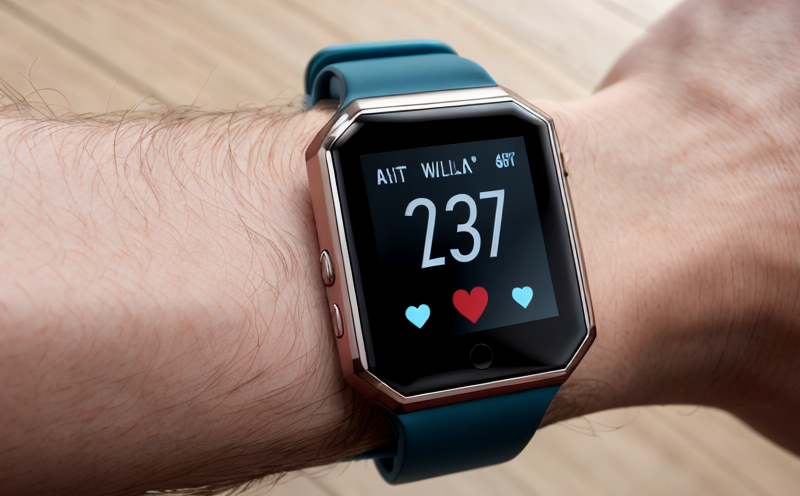Authentication and Access Control Testing for Wearable Systems
The authentication and access control testing of wearable systems is a critical aspect of ensuring the integrity, security, and reliability of digital health devices. In today's fast-evolving healthcare landscape, wearables like smartwatches, fitness trackers, and medical-grade devices must provide seamless integration with external platforms while maintaining robust security measures.
Authentication refers to the process by which a system verifies the identity of a user or device. Access control ensures that only authorized individuals or entities can access certain parts of the system. These tests are essential in preventing unauthorized data breaches and ensuring patient privacy, especially for sensitive medical information.
In the context of wearables, authentication typically involves biometric verification such as fingerprints, facial recognition, or voice patterns. For access control, mechanisms like secure token generation, encryption algorithms, and multi-factor authentication (MFA) are employed to enhance security. Compliance with international standards such as ISO/IEC 27001 for Information Security Management Systems is crucial.
During the testing process, various real-world scenarios are simulated to evaluate the robustness of these systems under different conditions. This includes testing for biometric accuracy in varied lighting conditions and environmental temperatures, evaluating encryption algorithms against common cyber threats, and assessing MFA effectiveness through simulated phishing attacks.
The primary goal is to ensure that authentication and access control mechanisms function flawlessly across diverse environments and user demographics. By adhering to stringent quality assurance protocols, we provide clients with reliable test results that can be used for regulatory submissions and internal R&D purposes.
Why Choose This Test
Selecting the right authentication and access control testing service is vital for maintaining high standards of security and reliability in wearable devices. Our comprehensive approach ensures that every aspect of your device's security measures is thoroughly evaluated, providing you with peace of mind regarding its performance.
We employ state-of-the-art facilities equipped with industry-leading equipment to conduct these tests accurately and consistently. Our team comprises experienced professionals who stay updated on the latest trends and developments in cybersecurity and biometric technologies.
The benefits of choosing our service include:
- Comprehensive testing covering all key areas including hardware, software, and network security.
- Prompt delivery of detailed reports with actionable insights tailored to your specific needs.
- Expert guidance throughout the entire process, from initial consultation to final report generation.
By partnering with us, you gain access to unparalleled expertise in this field, ensuring that your wearable systems meet the highest standards of security and reliability.
Customer Impact and Satisfaction
The implementation of robust authentication and access control measures not only enhances the overall security posture but also significantly improves customer trust and satisfaction. When users feel secure using their devices, they are more likely to continue purchasing and recommending these products.
Our tests help identify potential vulnerabilities early in the development cycle, allowing for timely fixes that prevent costly recalls later on. This proactive approach ensures compliance with regulatory requirements and enhances brand reputation.
We work closely with our clients to understand their unique challenges and tailor our services accordingly. Whether you're a startup developing innovative wearables or an established company looking to refine existing products, we offer customized solutions that align perfectly with your goals.
Use Cases and Application Examples
| Use Case | Description |
|---|---|
| Remote Patient Monitoring | In this scenario, authentication ensures that only authorized healthcare providers can access patient data. Access control restricts which personnel have read/write permissions. |
| Workplace Safety Solutions | For devices worn by workers in hazardous environments, secure authentication prevents accidental activation of safety features and ensures proper authorization for manual overrides. |
| Personal Health Management | User-specific access control allows individual users to manage their health data securely. Biometric authentication adds an extra layer of security against unauthorized access. |
| Insurance Claims Processing | Secure authentication and access control prevent fraudulent claims by ensuring that only legitimate claimants can submit requests. |
| Telemedicine Platforms | These platforms require stringent security measures to protect patient information. Authentication verifies the identity of both doctors and patients, while access control ensures proper permissions for data exchange. |
These examples illustrate how authentication and access control testing plays a crucial role in various sectors. By implementing these best practices, wearable device manufacturers can create products that not only meet regulatory standards but also exceed customer expectations.





